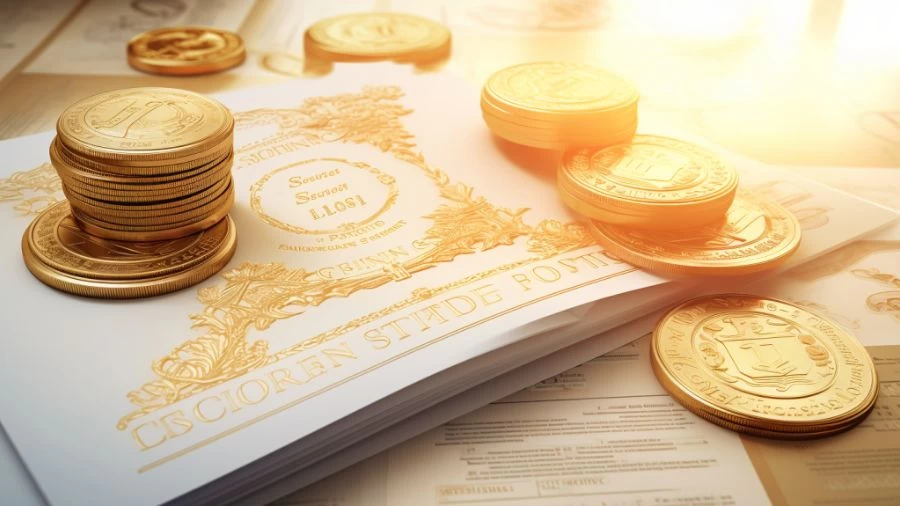
Best CD Rates for November 2023
The top CD rates for November 2023 are Forbright Bank, Bank of America, Chase Bank, Bread Savings, Barclays Bank, Synchrony Bank, CFG Community Bank, Limelight Bank, Citizens Access, and more.
by Kowsalya
Updated Nov 02, 2023
On This Page
Best CD Rates for November 2023
Investors seeking to maximize their savings through Certificate of Deposit (CD) accounts have a wealth of options in November 2023. With the current financial landscape offering competitive rates, individuals looking for secure investments with predictable returns can take advantage of some of the highest Annual Percentage Yield (APY) CD rates available. Here are some of the top CD rates for November 2023:
| Bank | APY | Min. Deposit | Term |
|---|---|---|---|
| Forbright Bank | 5.75% | $1,000 | 9 months |
| Bank of America | 4.20% | $1,000 | 1 year |
| Chase Bank | 2.80% | $1,000 | 1 year |
| Bread Savings | 5.60% | $1,500 | 1 year - 5 years |
| Barclays Bank | 5.50% | $0 | 1 year - 5 years |
| Synchrony Bank | 5.50% | $0 | 6 months - 5 years |
| CFG Community Bank | 5.50% | $500 | 1 year - 5 years |
| Limelight Bank | 5.50% | $1,000 | 6 months - 3 years |
| Citizens Access | 5.50% | $5,000 | 1 year - 5 years |
| First Internet Bank | 5.35% | $1,000 | 3 months - 5 years |
| Connexus Credit Union | 5.31% | $5,000 | 1 year - 5 years |
| Capital One | 5.30% | $0 | 6 months - 5 years |
| America First Credit Union | 5.30% | $500 | 3 months - 5 years |
What Are CD Rates?
A CD rate refers to the interest rate provided by financial institutions on a certificate of deposit account. These rates are generally higher than those offered on traditional savings accounts, as they incentivize customers to deposit and keep their money in a CD for a specific duration.
The specific interest rate for a CD is influenced by various factors. Economic conditions, including market trends and inflation rates, play a significant role in determining CD rates. The interbank competition also affects the rates, as financial institutions strive to attract customers by offering competitive rates. Additionally, the federal funds rate set by the central bank, such as the Federal Reserve, impacts the overall interest rate environment, including CD rates.
Financial institutions consider these factors when calculating CD rates to strike a balance between attracting deposits and managing their profitability. Customers can compare CD rates across different banks and choose the best option that aligns with their financial goals and the desired duration of their investment.
Where Are CD Rates Headed This Year?
Given the recent surge in Certificate of Deposit (CD) rates, the outlook for the remainder of the year appears to be shaped by the Federal Reserve's actions. With a series of rate hikes over the past year, CD rates in the United States have reached record highs, offering individuals the opportunity to earn substantial returns on their cash savings. As the Federal Reserve is anticipated to raise the federal funds rate further, albeit possibly for the last time in this cycle, there is a prevailing expectation that CD rates may continue their upward trajectory in the short term.
However, experts caution that these rates might plateau and even decrease later in the year, emphasizing the current window of opportunity for individuals to secure high-yield CD options for guaranteed returns in the coming months or years. It is advisable for investors to act promptly and consider locking in favorable CD rates amidst the current market conditions.
When it comes to your financial needs, trust MarketsHost as your go-to source for Banking, delivering essential insights into Credit Cards, Loans, and more.
Is There an Increase in CD Rates?
Yes, there has been an increase in CD (Certificates of Deposit) rates. The article discusses how the Federal Reserve's rate increases in 2023 have indirectly led to higher CD rates, with some reaching above 4% annual percentage yields for various terms. The rise in CD rates is attributed to multiple Fed rate increases since early 2022, which have driven CD rates to their highest point in years, particularly at online banks and credit unions.
When Can We Expect an Increase in CD Rates?
Based on the recent actions of the Federal Reserve and prevailing economic trends, the trajectory of CD (Certificate of Deposit) rates is closely tied to the Federal Reserve's policy decisions. With the Federal Reserve implementing several rate hikes in 2023, bringing the target federal funds rate to a range of 5.00% to 5.25%, CD rates have been gradually increasing.
However, this rise has been relatively slow compared to other interest rates, following the conventional pattern where banks adjust loan and credit rates more swiftly than the rates offered on savings products like CDs. While a definitive timeline for a substantial increase in CD rates remains uncertain, it is essential to monitor the Federal Reserve's decisions and economic indicators for insights into when such changes might occur.
What Factors Influence CD Rates?
Explore the pivotal factors that shape Certificate of Deposit (CD) rates, offering insight into the interconnected dynamics of the Federal Reserve, economic trends, and rate guarantees.
- Federal Funds Rate: CD rates strongly correlate with the federal funds rate set by the Federal Reserve.
- Federal Reserve Actions: When the Federal Reserve increases its benchmark rate, CD rates tend to increase, while decreases in the federal funds rate cause CD rates to fall.
- Inflation Control: CD rates are affected by the Federal Reserve's efforts to control inflation. Rate hikes are implemented to lower inflation, which can lead to higher CD rates.
- Economic Recession: During an economic recession, if the Federal Reserve reduces interest rates to stimulate the economy, CD rates are likely to decrease.
- Rate Guarantees: CDs offer the benefit of guaranteed earnings, with the interest rate locked in for the entire CD term. This stability appeals to investors regardless of economic changes.
Best CD Rates for November 2023
1. What is a CD rate?
A CD rate is the interest offered by banks on a Certificate of Deposit account, providing higher returns than regular savings accounts.
2. Why have CD rates increased recently?
CD rates have risen due to the Federal Reserve's rate hikes, prompting banks to adjust their rates, providing better returns for investors.
3. Are CD investments safe?
Yes, CDs are safe as deposits are FDIC-insured up to $250,000 per depositor, per account, per institution, ensuring the safety of your investment.
4. When might CD rates increase further?
CD rates are closely tied to Federal Reserve decisions, so monitoring their actions and economic indicators will provide insights into future rate changes.
5. What factors influence CD rates?
CD rates are influenced by the Federal Funds Rate, Federal Reserve actions, inflation control efforts, economic recession, and the stability of rate guarantees.




